“As a matter of institutional competence, [standards organizations] shouldn’t be in the business of determining [FRAND] rates. That’s not what they do.” – Adam Mossoff
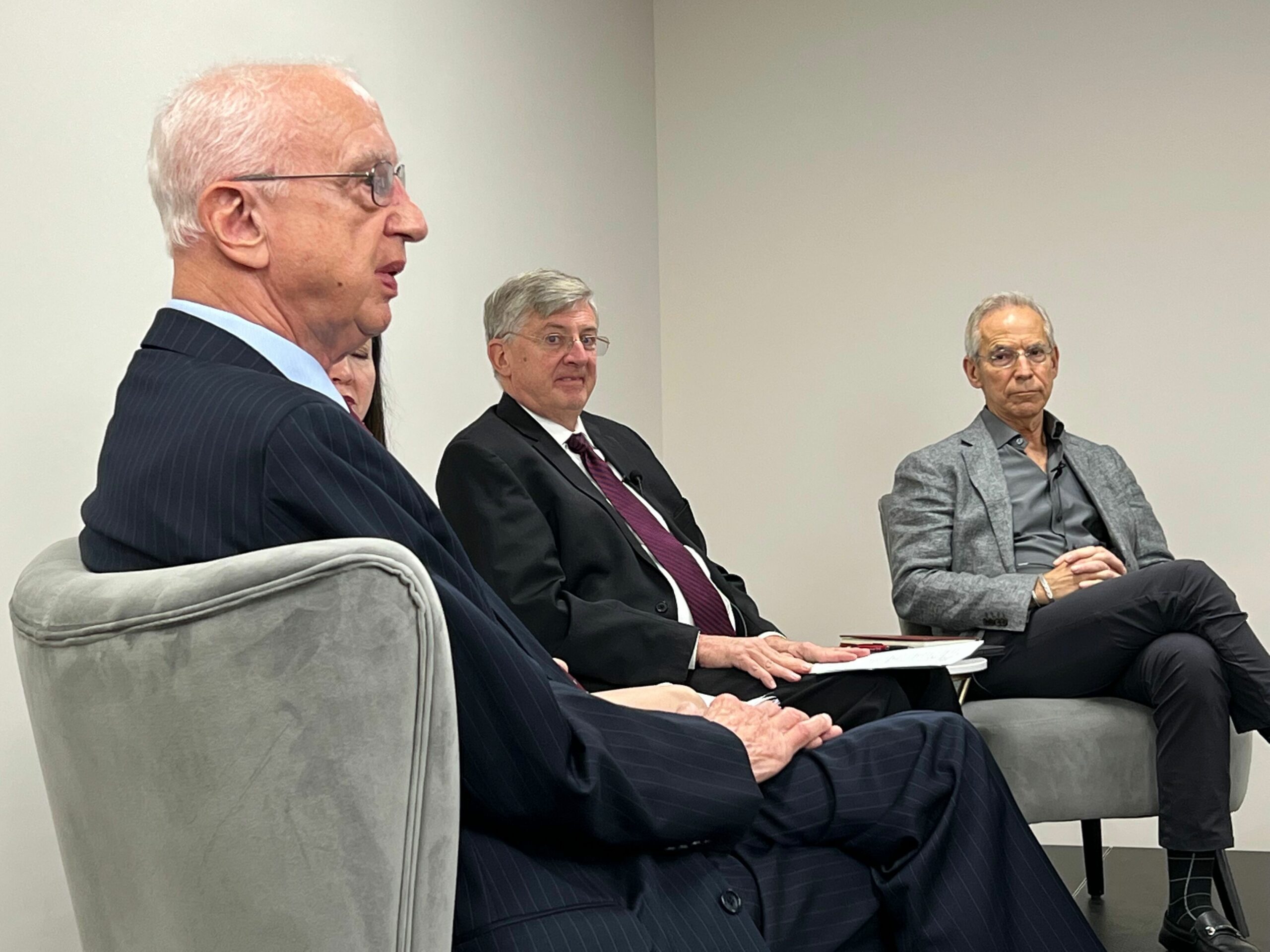
Left to right: Judge Paul Michel, Koren Wong-Ervin, Alden Abbott and Donald Rosenberg
IPWatchdog held its Standards, Patents and Competition Masters ™ 2022 Program this week, November, 14-15, in Ashburn, Virginia, covering topics from how to define “fair reasonable and non-discriminatory” (FRAND) rates to litigating standard essential patents (SEPs) in South America and Europe. Almost all of the panels touched on how courts around the world are viewing the practices of implementers and patent holders in the SEP debate and how standoffs between implementers and patent owners in FRAND cases can be better resolved.
The program kicked off with a discussion about policy approaches to the commercialization of SEPs and the interaction of patent and competition law between IPWatchdog Founder and CEO Gene Quinn and former International Trade Commission (ITC) Commissioner Professor F. Scott Kieff, who implored the patent community to stick to the data when arguing in favor of patent rights and to avoid getting caught up in emotional debates. “In the modern world, we don’t converse – we yell at each other, and we don’t write to engage in discussion, we all caps, bold and underline react to each other,” Kieff said. He added: “If you shift the conversation into raw power, property rights are irrelevant. I wouldn’t shout. I would try really hard to ground the conversation on firm ideas and on data. Have ideas.”
Joint Policy Statement Developments
Speaking on the first full panel of the day, Alden Abbott, Senior Research Fellow at the Mercatus Center and former General Counsel of the Federal Trade Commission (FTC), noted one example of how pointing to the data recently worked in the SEP context. Following the introduction of a potentially “dangerous” new SEP Policy Statement by the Department of Justice in 2021, Abbott recounted how a deluge of stakeholder comments demonstrating the realities of the SEP licensing market, where “hold-out” practices by implementers are far more well-documented than “hold-up” by innovators, the Statement was withdrawn. “Sometimes one can be overly pessimistic,” Abbott commented. Unfortunately, the 2019 Statement wasn’t reinstated, but it shows that if you submit good policy proposals, people will listen.”
SEP owner advocates were hoping the 2019 Joint Policy Statement of the United States Patent and Trademark Office (USPTO), National Institute of Standards and Technology (NIST) and the DOJ, which replaced the 2013 Statement, would remain in place following the withdrawal of the 2021 Statement. The 2019 Statement said that “[c]onsistent with the prevailing law… injunctive relief, reasonable royalties, lost profits, enhanced damages for willful infringement, and exclusion orders issued by the U.S. International Trade Commission… are equally available in patent litigation involving standards-essential patents.” However, many breathed a sigh of relief that the 2013 Statement was at least not reinstated, since it advised that injunctions or ITC exclusion orders may not be appropriate with respect to SEPs as such orders may be “inconsistent with the public interest.”
Availability of Exclusion Orders and Injunctions for SEPs
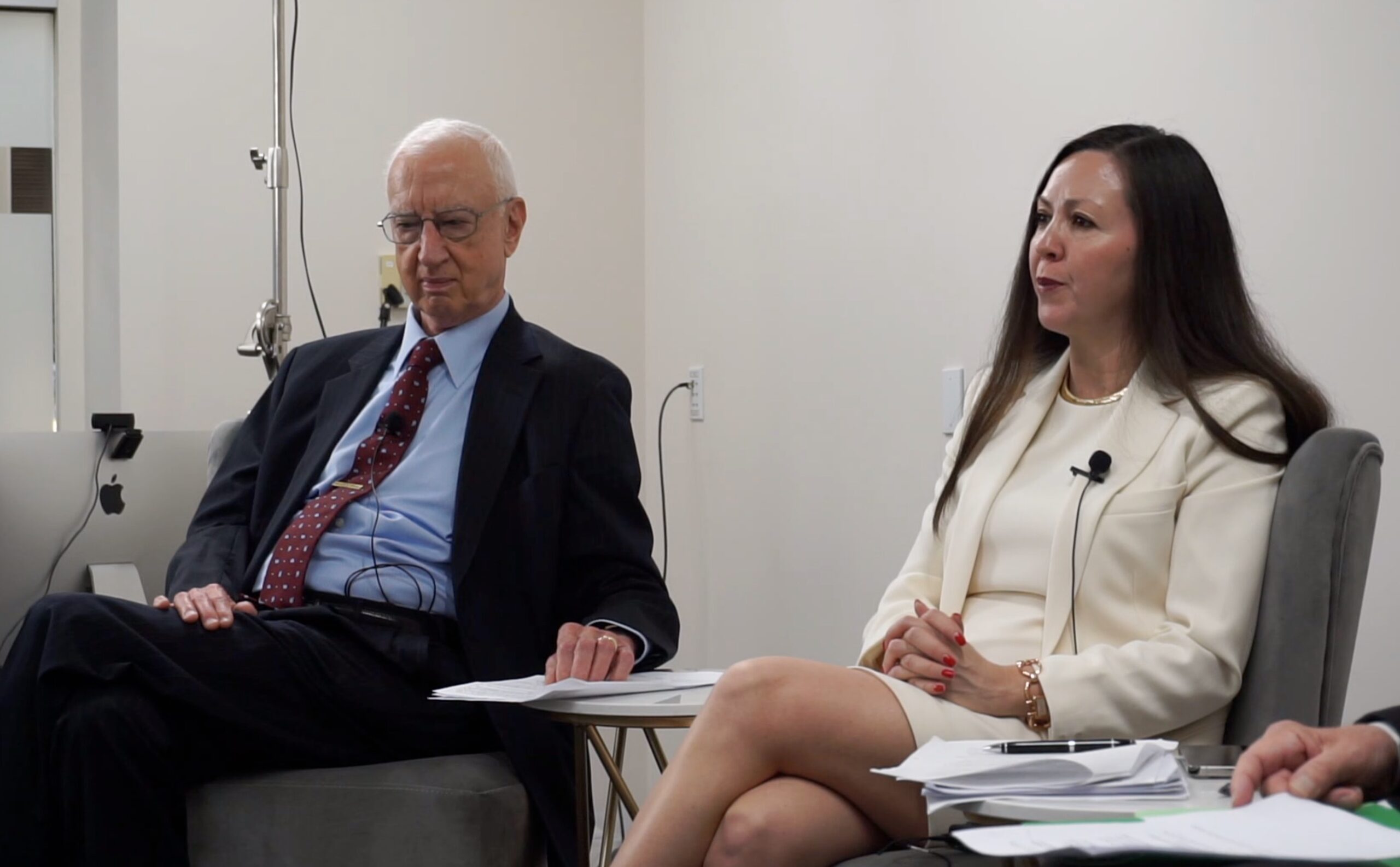
Judge Paul Michel and Koren Wong-Ervin
On the same panel, Koren Wong-Ervin of Axinn Veltrop & Harkrider, and former in-house counsel at Qualcomm and Attorney Advisor with the FTC, said that, while FTC Commission Chair Lina Khan and Commissioner Rebecca Kelly Slaughter submitted a statement to the ITC this year in a recent Investigation that suggests SEP owners shouldn’t be allowed to obtain Exclusion Orders in most cases, “they didn’t say never.” Wong-Ervin recommended that companies “go in [to the FTC], educate them and talk to them.” She added: “Go in regularly – form that credibility. Let them get to know you and bring in studies…and talk to the staff.”
Retired U.S. Court of Appeals for the Federal Circuit Chief Judge Paul Michel also joined the first panel, noting the impact of the U.S. Supreme Court’s eBay decision limiting injunctions on SEP negotiations. Without injunctions as a tool to force implementers to the table, hold-out is inevitable. “The best outcome is when circumstances force the two parties to get to agreement,” Michel said, adding: “Implementers have made vast billions of dollars. We’ve taken out the linchpin of the patent system. The people responsible [the courts] should fix it, or Congress should.” Michel also advocated for more and better engagement with the courts and regulators. “People often assume that judges know way more than they really do know about history and economic imperatives,” Michel said. “They’re listening to two diametrically opposed positions. We need real friends of the court to help the law develop. There’s a great role for amicus…to inform the court about reality.”
The (Un)Willing Licensee
In another panel attempting to define what “FRAND” is exactly, speakers debated what constitutes a “willing” licensee for purposes of determining whether an SEP owner has an obligation to license on FRAND terms. There is no global agreement on whether being “willing” is a prerequisite, though the European courts have generally followed the framework set forth in Huawei v. ZTE, which requires licensees to indicate a willingness to license immediately, once a licensor has approached with a FRAND offer. The European courts have been decidedly patent-owner friendly in their decisions on SEPs lately, with the UK Court of Appeal most recently ruling in a case between Apple and Optis Cellular Technology that Optis was entitled to an injunction before a lower court has made a FRAND rate determination for a license to Optis’ SEPs if Apple refuses to agree to that future court-determined FRAND license. While it was a win for Optis against Apple—which attendees of the SEP Masters program generally agreed has made hold-out its business model when it comes to SEP litigation—the judge in that decision also criticized both parties and called upon the European Telecommunications Standards Institute (ETSI) and other standards development organizations (SDOs) to “make legally-enforceable arbitration of such disputes part of their IPR policies.”
Should There Be a Special Tribunal for SEP Disputes?
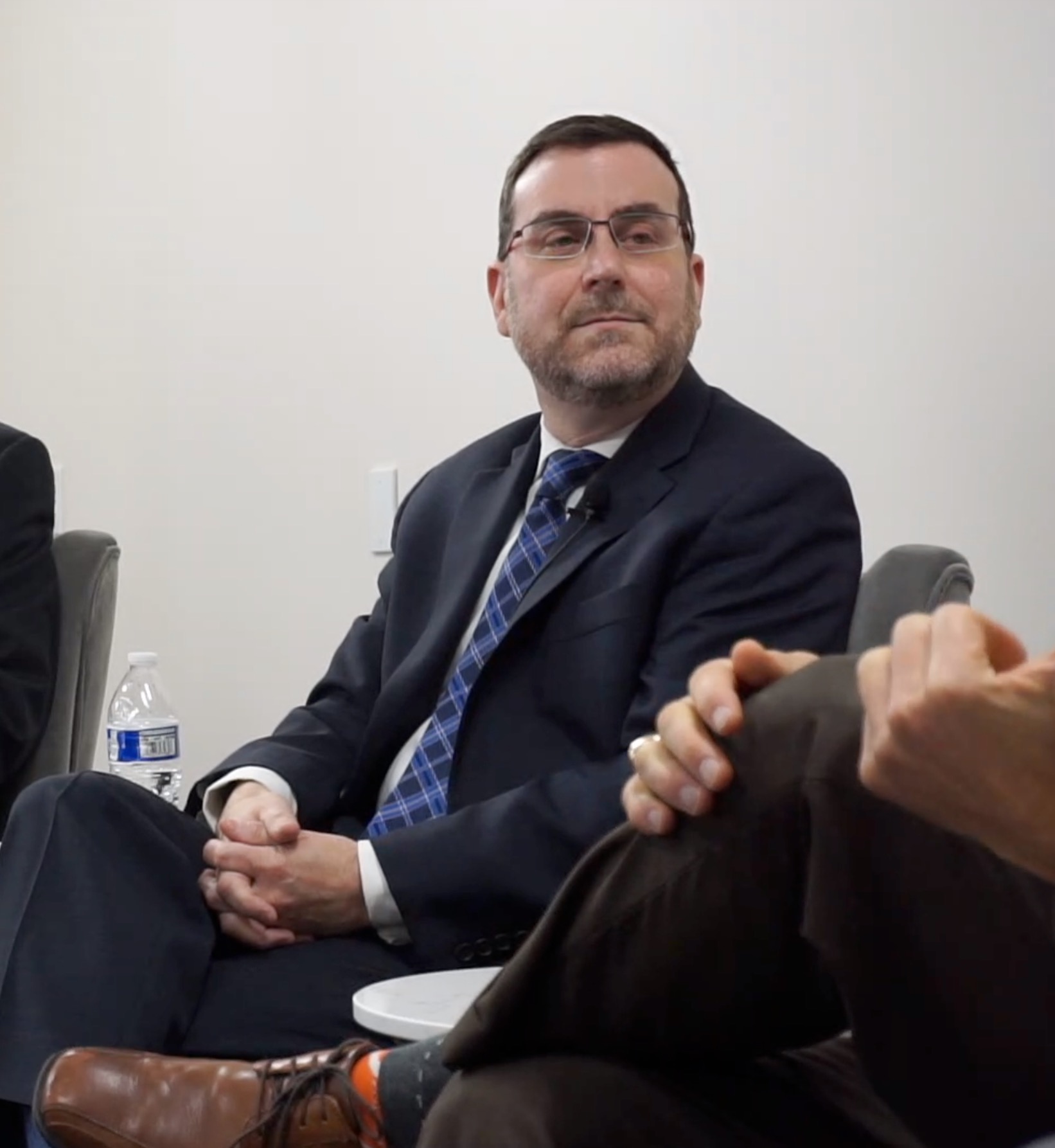 The idea of SDOs, the World Intellectual Property Organization (WIPO) or some other entity being responsible for setting FRAND rates in SEP disputes in order to solve some of the gamesmanship of inherently global SEP litigation has been floated by more than a few. Recently, the draft text of a bill to create a U.S. Standards Royalty Court has been circulated, though it is unclear who is backing it. Part of the stated goal for that bill is to stop China from setting FRAND rates via anti-suit injunctions, as a Wuhan court attempted in December 2020. But attendees and panelists at SEP Masters warned that patent owners should be careful what they wish for. “I understand the concept,” said Professor Adam Mossoff of the Antonin Scalia Law School, George Mason University, speaking on a panel about high-stakes, multinational SEP litigation. “But it’s what the PTAB was supposed to be….You’re just creating new opportunities for strategic behavior.”
The idea of SDOs, the World Intellectual Property Organization (WIPO) or some other entity being responsible for setting FRAND rates in SEP disputes in order to solve some of the gamesmanship of inherently global SEP litigation has been floated by more than a few. Recently, the draft text of a bill to create a U.S. Standards Royalty Court has been circulated, though it is unclear who is backing it. Part of the stated goal for that bill is to stop China from setting FRAND rates via anti-suit injunctions, as a Wuhan court attempted in December 2020. But attendees and panelists at SEP Masters warned that patent owners should be careful what they wish for. “I understand the concept,” said Professor Adam Mossoff of the Antonin Scalia Law School, George Mason University, speaking on a panel about high-stakes, multinational SEP litigation. “But it’s what the PTAB was supposed to be….You’re just creating new opportunities for strategic behavior.”
Mossoff also said SDOs should definitely not be the ones dealing with FRAND cases: “As a matter of institutional competence, SDOs shouldn’t be in the business of determining rates. That’s not what they do. They’re tech geeks.” Generally, said Mossoff, we should “be wary of the clarion call” for creating new institutions because when you create new opportunities for strategic behavior, “the lawyers win.”
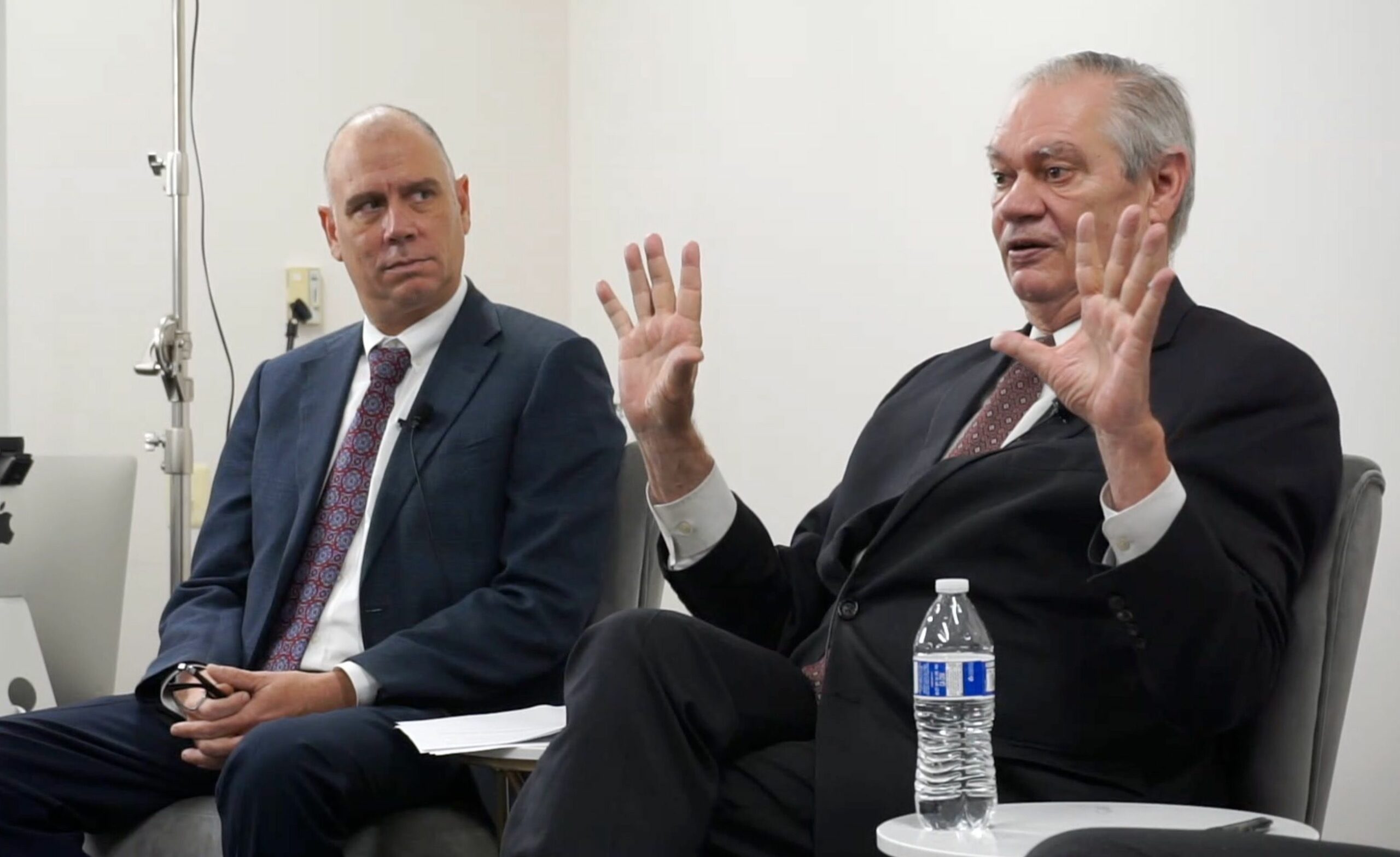
Curtis Dodd, Harfang IP (left) and Judge Theodore Essex
But in the meantime, definitions of key terms like “FRAND” and “willing licensee” remain elusive, and SEP owners trying to get companies like Apple to license their standard essential technology have a hard road ahead. Judge Theodore Essex of Hogan Lovells, who served as an ITC judge for a decade and handled his share of high-profile SEP cases there, said he is hard pressed to find an example of a readily willing implementer. “I haven’t seen a case where they have been willing without being forced,” Essex said. “Are there a group of people out there trying to do the right thing?”
Essex’s fellow panelist, John Kolakowski of Nokia, replied, “In my experience that’s a very rare animal – not often seen in the wild.”
But Jon Putnam of Competition Dynamics was slightly less cynical, putting the blame on the system, rather than the players. “There are actually people who want to do the right thing, but in a world where lots of people don’t do the right thing it’s very expensive to do the right thing,” he explained. “[There are those who feel] I can’t afford to take a license unless my competitor does too.”
Video and additional coverage of the SEP Masters Program panels will be available soon.
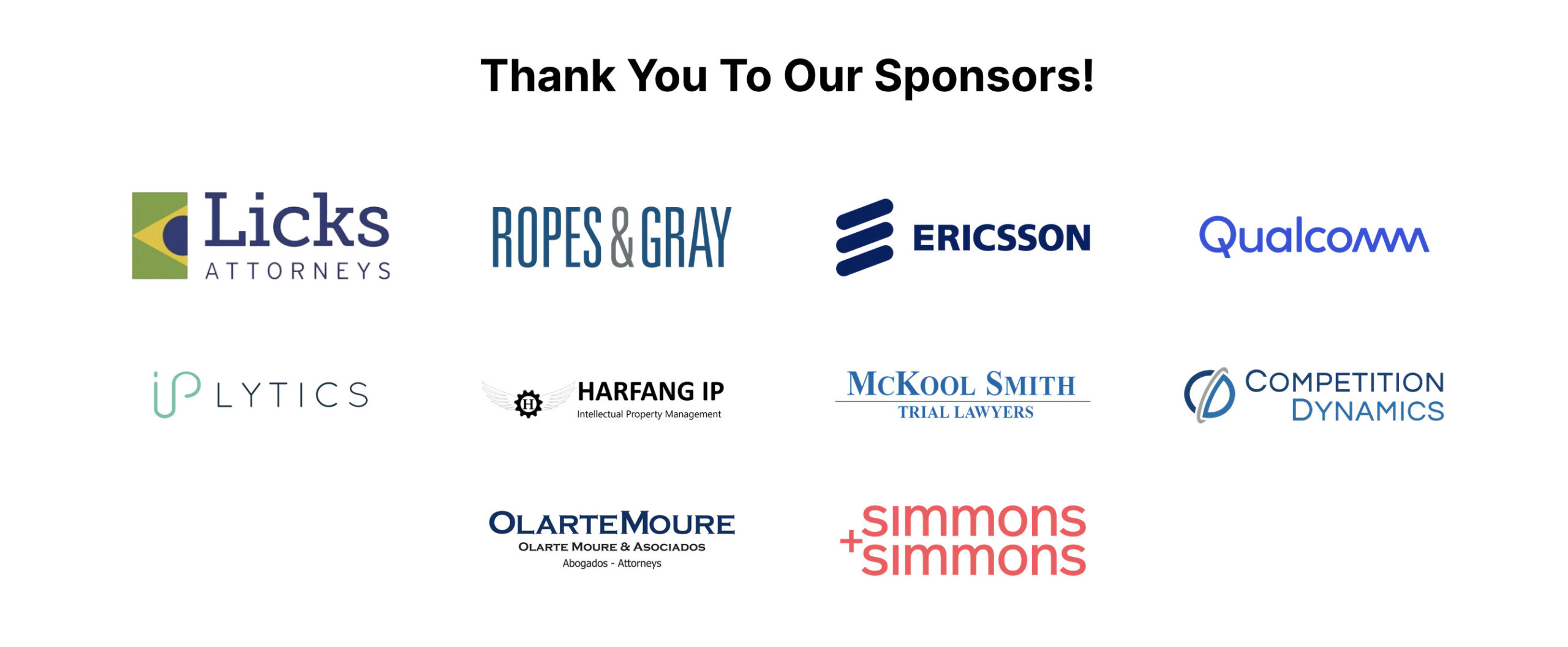

![[IPWatchdog Logo]](https://ipwatchdog.com/wp-content/themes/IPWatchdog%20-%202023/assets/images/temp/logo-small@2x.png)

![[Advertisement]](https://ipwatchdog.com/wp-content/uploads/2024/04/Patent-Litigation-Masters-2024-sidebar-early-bird-ends-Apr-21-last-chance-700x500-1.jpg)

![[Advertisement]](https://ipwatchdog.com/wp-content/uploads/2021/12/WEBINAR-336-x-280-px.png)
![[Advertisement]](https://ipwatchdog.com/wp-content/uploads/2021/12/2021-Patent-Practice-on-Demand-recorded-Feb-2021-336-x-280.jpg)
![[Advertisement]](https://ipwatchdog.com/wp-content/uploads/2021/12/Ad-4-The-Invent-Patent-System™.png)







Join the Discussion
No comments yet.